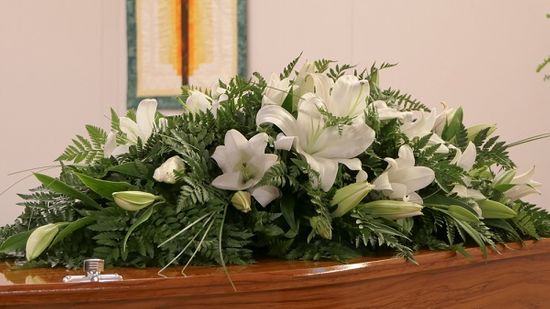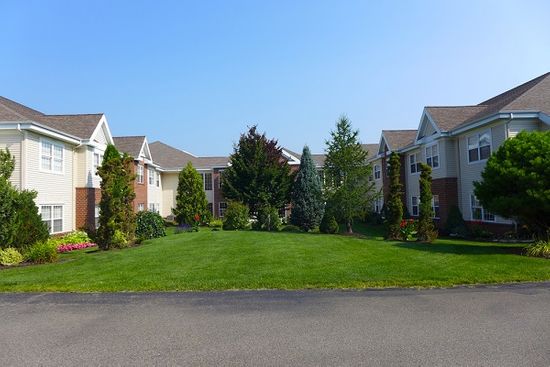The final chapter of a loved one's life journey can be a deeply emotional and tender experience.
When hospice care becomes the cornerstone of their final days, the focus gracefully shifts towards ensuring comfort, preserving dignity, and facilitating a peaceful passing. While hospice professionals provide exceptional and compassionate support throughout this time, navigating the immediate aftermath of death in a hospice setting can be a source of both practical and emotional concerns for families.
This comprehensive guide delves into the essential steps involved in navigating this difficult situation.
We'll explore what to expect after someone passes away in hospice, the legalities involved, and the resources available to ensure a smooth transition during this sensitive time. By understanding these procedures and the support systems in place, you can better cope with the practicalities and focus on cherishing the memory of your loved one.
The immediate moments following the passing of a loved one in hospice require thoughtful actions that prioritise both honouring the wishes of the deceased and allowing family members a precious space for final goodbyes.
The below steps are set out if you are present when your loved one dies. However, in some cases, you may be alerted by the hospice staff that your loved one has passed away.
In this case, the first two steps below won't apply as the trained hospice staff will take care of the necessary formalities.
Alerting hospice staff
If there are no staff in the room at the time, the first step is to inform the nurses or healthcare aides on duty. Trained with sensitivity, they will ensure all necessary medical procedures are followed and attend to the immediate needs of the deceased.
Confirmation of death
A doctor or registered nurse will formally confirm the passing. This typically involves checking vital signs and may include a brief physical examination.
Time with your loved one
Hospice staff understand the immense emotional weight of this moment. In most cases, they will create a quiet and private space for family and loved ones to spend their final moments with the deceased and say their goodbyes.
Contacting family
Once you have composed yourself, you may want to begin informing close family members about the passing. Leaning on trusted loved ones for support during this initial phase is crucial.
When someone dies in a hospice, you’ll need to get the death confirmed officially by a medical professional before any further action can be taken. The medical professional will then issue a Medical Certificate, allowing you to register the death.
While emotions are likely running high, some preliminary decisions regarding funeral arrangements may need to be made. Hospice staff can often provide recommendations for funeral providers or services familiar with handling deceased individuals from hospice care.
A funeral provider plays a key role in the dignified transportation of the deceased to a funeral home or mortuary. They will also guide you through various funeral service options, be it a traditional burial, direct cremation, or a memorial service.
If the deceased held a prepaid funeral plan, you’ll need to get in touch with the relevant funeral provider and make them aware of what’s happened. If the deceased didn’t have a prepaid funeral plan, you’ll need to instruct the services of a funeral provider of your choosing like us here at Distinct Cremations.
We are open 24/7 and we will make all the arrangements from taking the deceased into our care to completing all the paperwork. Our customer service specialists will liaise with you to make arrangements for the cremation and keep you updated.
Call us to arrange on 01543 212 000
Arrange a funeralIt's crucial to register the death within a designated timeframe, five days in England, Wales and Northern Ireland, eight days in Scotland. Contacting your local register office is the first step, and they can be easily found through a web search or by inquiring at your local council.
The registrar will guide you through the registration process, which involves presenting specific documentation. This typically includes the Medical Certificate of Cause of Death (MCCD) issued by the doctor in hospice, along with the deceased's full name, date of birth, and their usual address.
You will receive an official death certificate after registration. Obtaining a death certificate following the passing of a loved one in hospice is a necessary step. This legal document serves as official confirmation of the death and plays a crucial role in various administrative processes.
Having several certified copies of the death certificate readily available is recommended. These copies will be essential for various legal and administrative tasks you may encounter throughout the process of settling the deceased's affairs, such as closing bank accounts and dealing with probate and inheritance.
Following the registration of the death and amidst the waves of grief, a significant decision arises - planning a funeral service to commemorate the life of your departed loved one.
Here are some things to consider:

A funeral provider plays a key role in the dignified transportation of the deceased to a funeral home or mortuary. They will also guide you through the various funeral service options available, be it a traditional burial, cremation, direct cremation or a memorial service.
Discuss your preferences with them and any specific requests you may have regarding the care of your loved one's remains.

Funeral providers can present various options to suit your budget and wishes. This may involve selecting a coffin or urn, arranging the viewing or wake, and planning the funeral ceremony itself.
Remember, there are no right or wrong choices, and it's perfectly acceptable to have a simple and intimate ceremony or a larger gathering to celebrate the life of the deceased.
Planning a funeral amidst the emotional turmoil of losing a loved one can be overwhelming. Here at Distinct Cremations, we understand the delicate nature of this difficult time and we offer dedicated support throughout the process.
Contact us today or request a free guide to learn more about our services, which include:

Many hospices offer bereavement support services to families following a loss. This may include individual counselling, support groups, or educational resources.
There are a number of charities and helplines doing great work for those recently bereaved:

As opposed to those who die in a hospice, hospital or care home, at home you won't have anyone to guide you through the process. That’s why it’s important to know what you’ll need to do before that happens.
Find out more
When someone dies in a care home, it’s slightly different to a hospice, home or hospital but the steps you’ll need to take are mostly the same. This article has a step-by-step guide and information on outstanding care home fees.
Find out more
When a loved one dies in a hospital, you’ll likely be made aware that death is imminent and be able to prepare for it although it doesn’t take away the impact of the loss. Here's what you need to do when someone dies in hospital.
Find out moreWe offer the highest level of support, but don't just take our word for it. Below are recent reviews from customers who bought a funeral with us.





